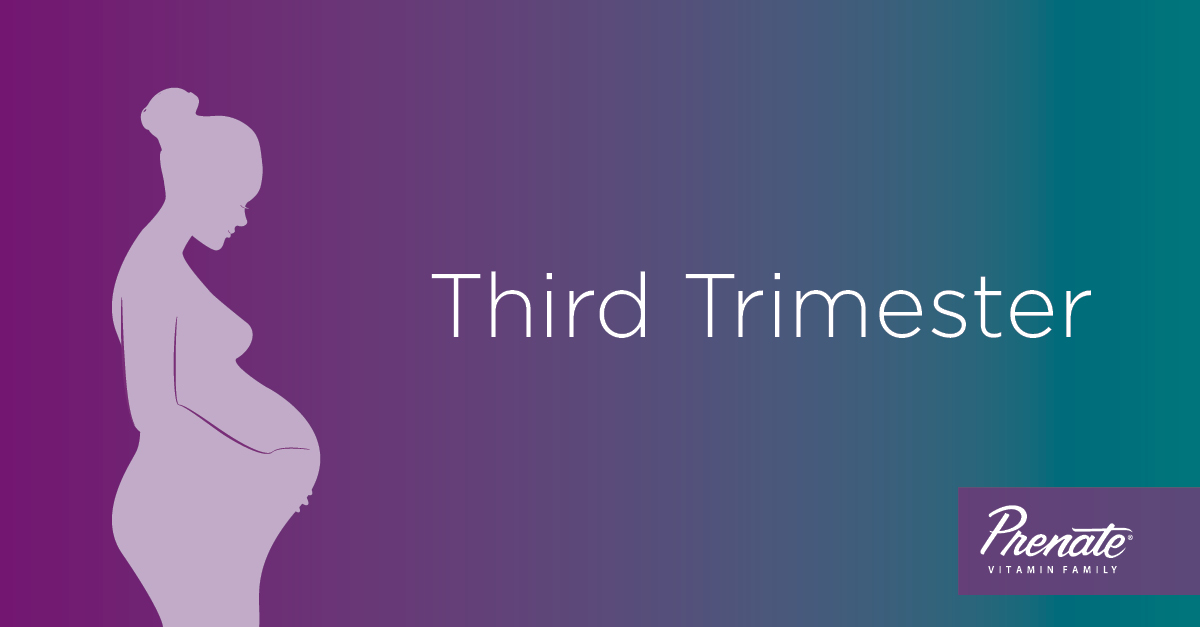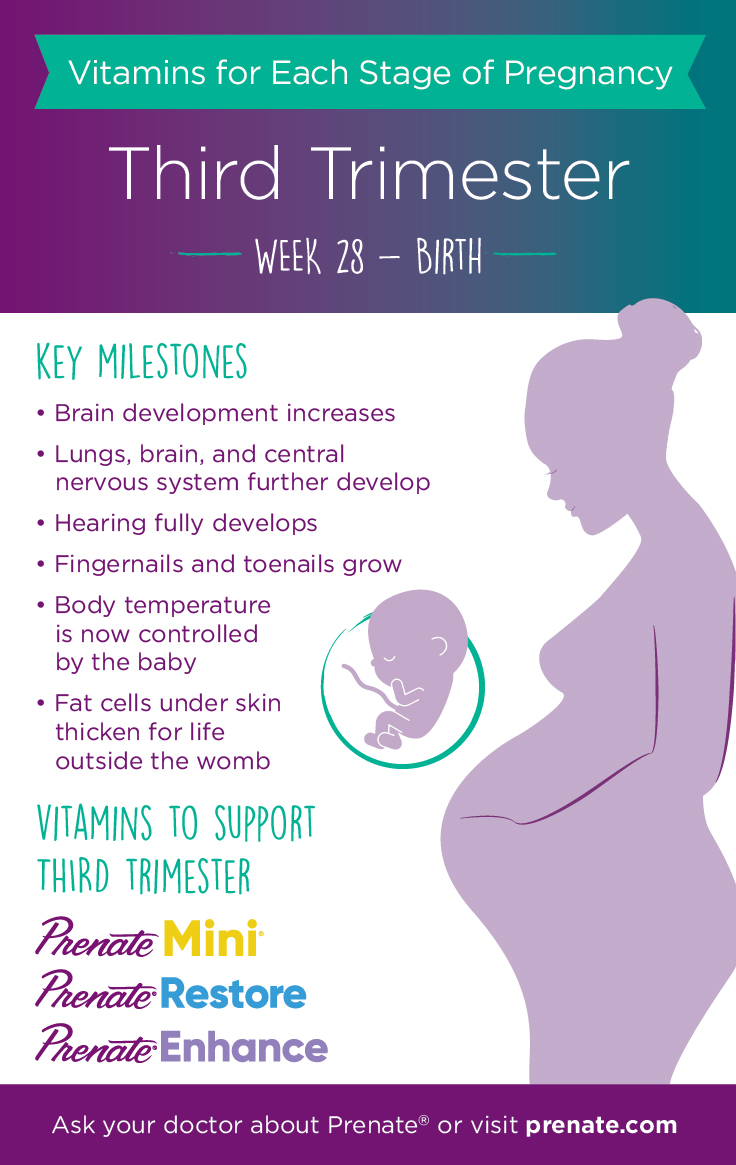Prenatal Vitamins for Each Stage of Pregnancy: Third Trimester – Months 7 to 9
September 15, 2017
You’ve made it to the home stretch of pregnancy! As your baby continues to grow, you may find it hard to stay active. The third trimester can be tiring and uncomfortable. Anxiety about your fast approaching due date may increase. But these final months of pregnancy help put the finishing touches on your baby’s development and require essential nutrients to support his or her continued growth.
Key Developmental Milestones in the Third Trimester:
- Brian development increases
- Lungs, brain and central nervous system further develop
- Hearing fully develops
- Fingernails and toenails grow
- Body temperature is now controlled by the baby
- Fat cells under skin thicken for life outside womb
Prenatal Vitamins for the Third Trimester
While a balanced diet is a preferred way of meeting nutritional needs, some women may have trouble achieving their daily recommended intakes for specific vitamins and minerals from diet alone. The Prenate® Vitamin Family offers a line of prenatal vitamins that are designed to carry moms and babies through preconception to pregnancy and into the weeks and months after delivery.
These vitamins are specifically formulated to fit the needs of mothers and babies during the third trimester:
- Prenate Mini® is a small but robust softgel prenatal supplement with 14 nutrient forms.
- Prenate® Enhance is a prenatal vitamin with 400 mg of DHA, 25 mcg of vitamin D, and chelated iron.
- Prenate® Restore is the only Prenate® prenatal vitamin with probiotics, plus DHA and chelated iron.
These prenatal vitamins contain key nutrients to help support third trimester developmental milestones:
- Iron – The U.S. Food and Drug Administration recommends that pregnant women get 18 mg of iron daily.1; During the third trimester, the mother’s blood volume increases to meet the needs of her baby and the placenta.2 Sufficient iron consumption during the third trimester helps a growing baby receive the amount of oxygen needed to develop a strong heart and lungs, and muscles. Iron deficiency during pregnancy increases the risk of premature birth and low birthweight.2
- DHA – The National Institutes of Health recommend that women consume 300 mg of DHA during the first trimester of pregnancy and continue throughout pregnancy.3 A baby’s brain develops dramatically during the third trimester, and DHA is essential for its growth and functional development.4 During pregnancy, DHA also helps with a baby’s length of gestation and birth weight.5,6 During the third trimester, when a baby’s body is dramatically developing, DHA aids in a healthy birth weight and the length of gestation.4,5
- Calcium – The U.S. Food and Drug Administration recommends that pregnant and lactating women get 1,300 mg of calcium daily.1 This is especially important in the third trimester as a baby’s bones develop. If a mother does not consume enough calcium, her baby will draw the mineral from her bones.7 Calcium works with vitamin D to develop and maintain bone strength and healthy teeth for mothers and babies.8 In babies, it also helps the heart, nerves, muscles and other body systems develop properly.10 And for mothers in their third trimester, adequate calcium intake may reduce systolic and diastolic blood pressure and the risk of preeclampsia.9
- Vitamin D – The U.S. Food and Drug Administration recommends that pregnant and lactating women get 400 IU of vitamin D daily.1 One of the primary benefits of vitamin D is in helping the body maintain and build bone mineralization. Vitamin D helps the body absorb calcium, which is necessary in building a strong skeletal system.11 However, vitamin D does not only help build and maintain healthy bones. Ample vitamin D supplies also may help reduce a mother’s risk of developing preeclampsia and gestational diabetes, which occur more often in the third trimester.12
Talking to your Healthcare Provider About Prenatal Vitamins
These essential nutrients should be included in every prenatal diet during the third trimester. The Prenate® Vitamin Family helps support expecting moms with robust doses of key nutrients. Talk to your doctor to see if a Prenate® prenatal vitamin may be right for you to help fill nutritional gaps.











